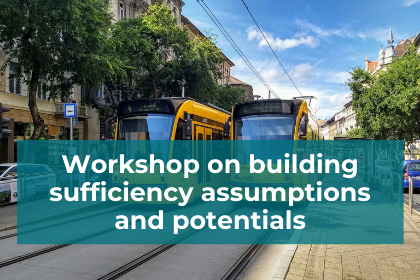Workshop on building sufficiency assumptions and potentials adapted to the cee context

Key sufficiency experts from CACTUS partner organisations gathered online on 21 May 2021 to exchange on sufficiency potentials adapted to the national context. Partners had selected key sufficiency indicators such as square meters per inhabitant or average households size for the buildings sector, or traveled distance (passenger.km/capita) by different modes of transport or number of people per vehicle for the mobility sector. Experts had gathered historical data for each country, theoretical sufficiency potentials for 2050 from literature as well as potentials adapted to the French or German context in key sufficiency based scenarios such as the négaWatt scenario for France or Green Supreme from Rescue for Germany.
Experts have also gathered key justifications for these theoretical assumptions, including best practices policies on each indicator. REKK and LEI experts have detailed socio-economic and cultural context to analyse and explain historical trends in Hungary and Lithuania, and then developed long-term projections and corresponding assumptions on the indicators. During the workshop, partners exchanged on proposed targets for each prioritised indicator for each country, comparing national situations and theoretical levels. Justifications and enabling policy measures were also discussed, with a view to enable more sufficient levels.
Further Informtion
The négaWatt 2050 Energy Scenario
The Rescue scenario GreenSupreme by Umweltbundesamt
DOWNLOAD THE PRESENTATION AND THE ASSUMPTIONS TABLE
Responsible for the content of this page is the named author / organisation: CACTUS
